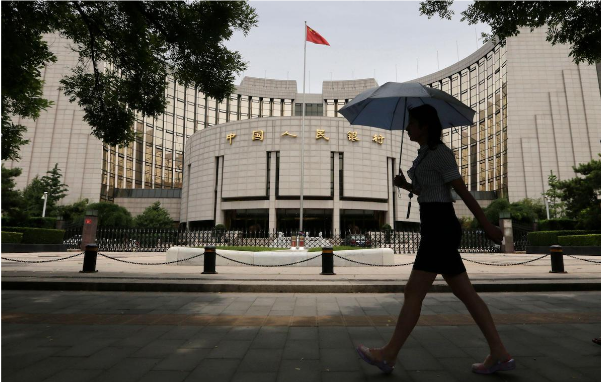China’s Credit Downgraded amid Negative Future Forecast
China’s Ministry of Finance Source: Alamy Stock Photo
This week, U.S.-based credit rating agency Moody downgraded China’s economic outlook. Though not an official credit downgrade — China’s credit remains rated A1 — the news still carries heavy significance, as an outlook downgrade is generally the first step taken before credit is downgraded in the future. According to Moody’s, the downgrade is based on a plethora of factors, with the primary being risks from financing local and provincial governments as well as SOEs (state-owned enterprises). Other less prominent factors include growing anxiety over China’s rapidly approaching population dive, which will see China’s population fall from its current 1.41 billion to anywhere from 1.15 billion and 488 million by 2100, according to the United Nations. Although hard to grasp in the near-term, in time this will constitute a rapid and constant shrinking of the labor force.
As a result of the outlook downgrade, shares in the Shanghai and Hong Kong stock markets fell as each market’s composite index fell by 1.7% and 1.9% respectively. This was followed by the publication of additional Moody’s reports, which dropped credit outlooks for eight Chinese banks from stable to negative, as well as lowered Hong Kong’s overall credit outlook to negative. According to Moody’s, the expectation is that the Chinese economy will grow at an annual pace of 4% (in terms of nominal GDP) in 2024 and 2025, with the potential to slow to roughly 3.5% by 2030.
A colorful beachfront skyline in Qingdao, China Source: Xiaoyong/Dreamstime
The news, while undeniably negative, is not incredibly bad for Chinese state finances. As outlined by the New York Times, “the change in the credit outlook will have little direct effect on its finances. Unlike many countries, China relies very little on overseas borrowing. The [Chinese] national government mainly sells bonds to the country’s state-owned banks.” The most negative component of the downgrade is its relation to the Chinese housing crisis. Chinese local and regional governments have borrowed heavily to fuel a debt-leveraged construction boom. Now, as housing prices in China begin to fall, many Chinese regional governments find themselves heavily indebted, with the prospect of future debt looking ever more expensive. As the fiscal year comes to a close, the Chinese government who had high economic hopes for 2023 will surely be hoping for a better 2024.


